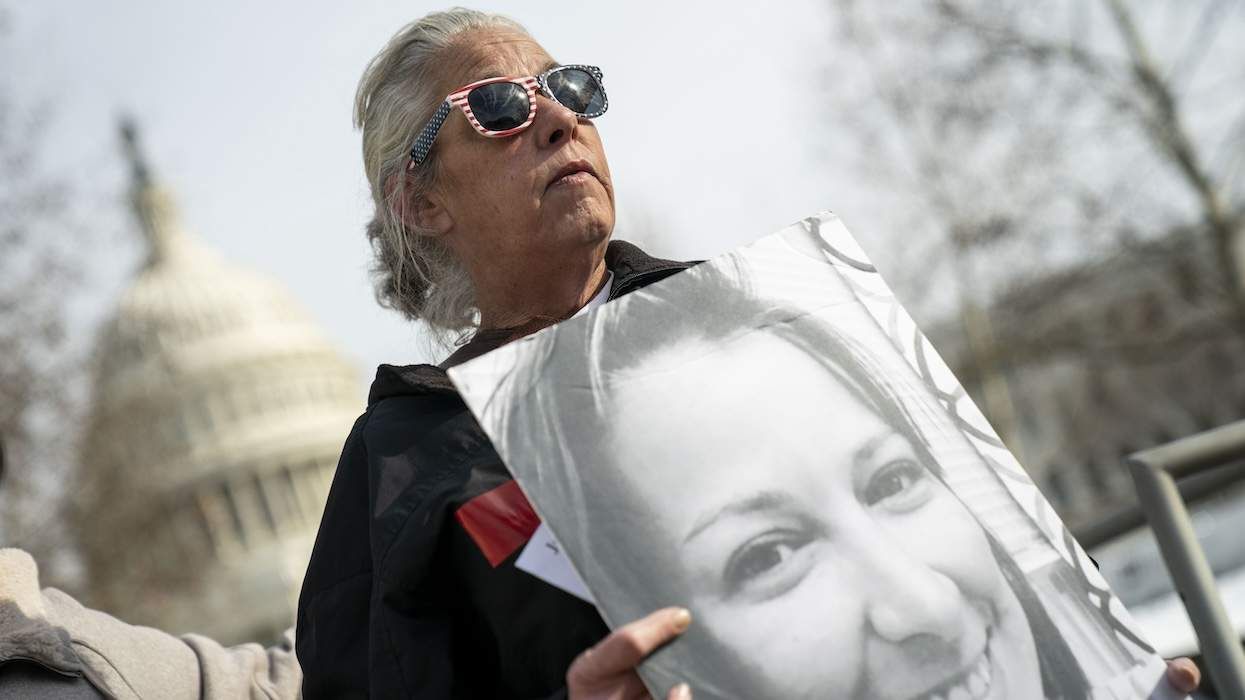The U.S. Department of Justice has weighed in on a transgender woman's lawsuit against the Georgia Department of Corrections, saying prisons have a constitutional obligation to keep all incarcerated people safe.
The DOJ filed a "statement of interest" Thursday in the case of Ashley Diamond, who sued the Georgia DOC last year. Diamond's suit says the state has housed her in men's prisons, failed to protect her from sexual assault, and denied her the health care she needed.
Without taking a stand on the facts of the case -- that is, whether the abuse alleged by Diamond actually occurred -- the department said prisons must assure the safety of all those within their walls, including trans inmates.
"The United States submits that the Eighth Amendment requires prison officials to conduct individualized assessments that lead to reasonably safe conditions of confinement and adequate medical care for all prisoners," the DOJ statement reads. "These requirements are embodied by the Prison Rape Elimination Act Standards and professional medical standards that are relevant to the Eighth Amendment analysis. Prison officials violate the Constitution by (1) categorically refusing to assign transgender prisoners to housing that corresponds to their gender identity even if an individualized risk assessment indicates that doing so is necessary to mitigate a substantial risk of serious harm, and (2) failing to individualize the medical care of transgender prisoners for the treatment of gender dysphoria."
Diamond had sued the Georgia DOC once before, in 2015, while she was an inmate at the Georgia State Prison, a men's facility, because officials had not allowed her to receive hormone therapy while serving her sentence. She was released in August of that year, and in 2016 she won a historic settlement under which the state changed policies so that many trans inmates could receive treatment, and agreed to revamp its sexual assault policy and train staff on the needs of trans prisoner.
But she was returned to prison in 2019 for a parole violation, and she says she found out that nothing had changed, leading to her 2020 suit. The suit says that while serving in two men's prisons over since then, Diamond was sexually assaulted at least 14 times by other inmates and prison staff, including four assaults by different people over three days. A day before she moved into a dorm at the second facility, "an officer called a dormitory-wide meeting and announced Ms. Diamond's transgender status, disclosing confidential medical information and describing her as 'a freak,' 'he,' and 'it,'" according to a press release issued last year by the Center for Constitutional Rights, which is representing her along with the Southern Poverty Law Center. "Shortly after this meeting, Ms. Diamond was -- predictably -- assaulted." She also has been denied treatment again, leading her to attempt self-castration and suicide, according to the suit.
She has been sexually assaulted at least two more times since the suit was filed last November, the Center for Constitutional Rights reports now, and the Georgia DOC has refused to move her out of the dorm where she has been victimized. It has also continued to deny her medical care, the organization says, and has retaliated against her by trying to diminish her chances of early release on parole.
Prison officials have marked Diamond's record with reports of "rule violations and disciplinary infractions that were either plainly false, manufactured, or based on minutiae not enforced against others," says an April press release from the center. They even pressured a fellow inmate to falsely accuse Diamond of sexual assault and punished him when he refused, according to the organization.
Because of all this the Center for Constitutional Rights and SPLC this month filed a motion with a federal judge seeking an emergency order to protect Diamond. Among other things, the lawyers want her to be transferred to a women's prison immediately, given the medical treatment she needs, and protected from further retaliation.
The organizations welcomed the DOJ's action. "The DOJ's Statement of Interest affirms what Ms. Diamond has alleged in her lawsuit: that prison officials violate the U.S. Constitution and the Eighth Amendment's prohibition on cruel and unusual punishment when they refuse transgender people placements at facilities that correspond to their gender identity where needed for safety, and when they deny transgender people medically necessary gender dysphoria care without conducting individualized assessments of their needs," they said in a joint statement.
"In essence, the DOJ confirms that when it comes to Ms. Diamond -- who alleges repeated sexual assaults, including by prison officials, and ongoing denial of adequate medical care -- the U.S. Constitution is on her side. We are encouraged that the Biden administration agrees, and optimistic that the court will protect the rights of Ms. Diamond and other incarcerated trans people."




































































Charlie Kirk DID say stoning gay people was the 'perfect law' — and these other heinous quotes